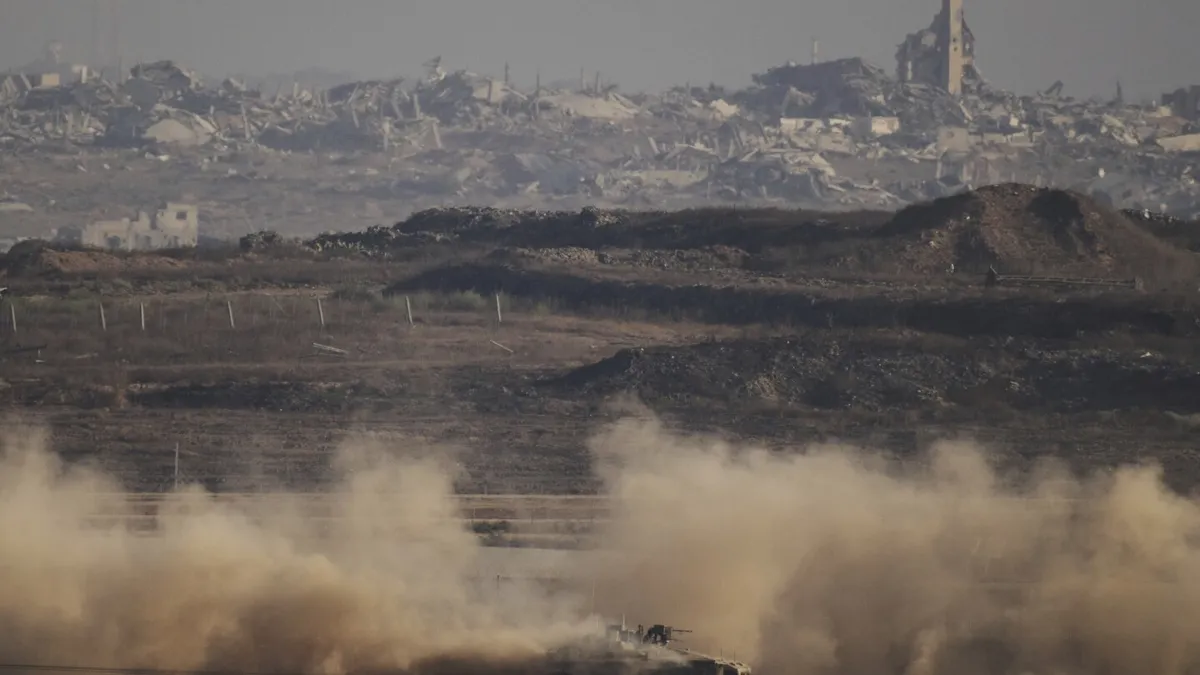
DEIR AL-BALAH, Gaza Strip (AP) — A devastating Israeli strike on a hospital in southern Gaza resulted in the tragic deaths of four journalists on Monday, including Mariam Dagga, a freelancer for The Associated Press. Health officials confirmed the casualties, highlighting the grave impact of the ongoing conflict on media professionals in the region.
According to reports, the strike targeted Nasser Hospital, leading to the death of 19 individuals, as stated by Zaher al-Waheidi, the head of the Health Ministry’s records department. Among those lost was Mariam Dagga, 33, a talented visual journalist who had been freelancing for the AP since the onset of the Gaza war. Dagga also contributed to other news outlets, showcasing her commitment to delivering critical information from one of the world's most dangerous conflict zones.
The Associated Press expressed profound shock and sadness at the loss of Dagga and the other journalists. Her work was particularly vital, as she frequently reported from Nasser Hospital, documenting the struggles of doctors attempting to save children suffering from starvation amid the chaos of war. Dagga was a devoted mother to a 12-year-old son who had been evacuated from Gaza earlier during the conflict.
In addition to Dagga, the strike also claimed the life of Mohammed Salam, a journalist working for Al Jazeera. Reports from Reuters indicated that its contractor cameraman, Hussam al-Masri, was also killed in the attack, while photographer Hatem Khaled sustained injuries. The Israeli prime minister’s office and military have yet to comment on this tragic incident.
The Israel-Hamas war has emerged as one of the most perilous conflicts for media workers, with at least 192 journalists losing their lives in Gaza over the past 22 months, according to the Committee to Protect Journalists (CPJ). In stark contrast, only 18 journalists have been reported killed in the ongoing war in Ukraine during the same period. This alarming statistic underscores the dangers faced by journalists covering the Gaza conflict.
Given the Israeli government's restrictions, international media have been largely barred from covering the war, relying heavily on Palestinian journalists and local residents to convey the realities on the ground. While Israel often questions the affiliations and biases of Palestinian journalists, it maintains strict control over foreign media presence, exacerbating the challenges for those reporting from Gaza.
Many journalists working in the region share the same struggles for basic necessities, such as food, as the communities they aim to serve. This shared hardship highlights the critical role these journalists play in bringing awareness to the dire conditions faced by the people of Gaza amidst ongoing violence.
As the situation continues to evolve, the importance of supporting journalists like Mariam Dagga and acknowledging their sacrifices becomes increasingly vital in the pursuit of truth and accountability in conflict zones.
___ Lidman reported from Jerusalem.